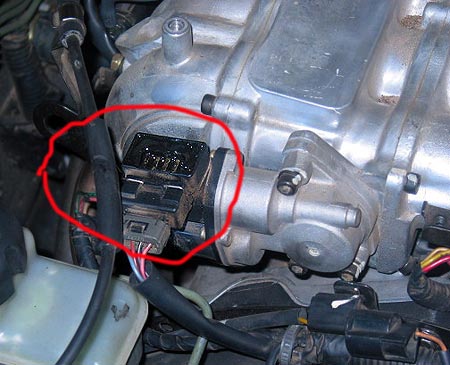Of course Hyundai – the car company – is not in meltdown. But back in December I wondered should I be thrilled when I found that a part of my Hyundai Grandeur had melted and was having a very adverse effect on the acceleration.
It’s been so bad that our normally very responsive car has turned into something rather sluggish and finding a replacement took some time – our mechanic is great with motors but maybe not so good at remembering that he’s supposed to be tracking down a rather rare part.
But finally he did and late last week he came back to us with a price – $1,000 for a part about the size of a matchbox. You’ll see it in this photo.

Now even though that little solenoid is actually attached to the small silver bit by two bolts – and the small silver bit is attached to the manifold by three more bolts – the local Hyundai dealer claims that to replace it we’ve got to buy the whole manifold assembly … for $1,000.
To be honest we’ve not had a good experience with our local Hyundai dealer over the years and we weren’t surprised to be given a price like that. So now we’re trying wreckers and other Hyundai dealers because … well … do you have a thousand bucks to spend on a solenoid that needs to be replaced because the original one melted?
2 thoughts on “Hyundai Meltdown”
Comments are closed.
Have had a disturbingly similar experience with my 2001 Grandeur’s intake manifold, resulting in the exact same symptoms you describe (extremely impeded acceleration). Unfortunately, was also given the same advice – despite the fact that a single valve is all that has malfunctioned, the individual part is not sold separately and, if I wanted to use new parts, I’d need to replace the entire the entire valve duct assembly. Hyundai (Canberra) have advised that a new part will set me back $1414.00.
Have since taken the car to two independant mechanics for a ‘second opinion’ and to check on the viability of sourcing secondhand parts (which Hyundai won’t source or install). Both advised that this fault is far from unsusual, and was actually the result of an inherant fault with the [mitsubishi] engine. They also warned against using a secondhand part, as it would already be well on the road to the same sort of failure – it would just be a matter of time.
Furthermore, finding a replacement part is next to impossible – in fact, both mechanics refused to search for the spare part themselves, as they’d had enourmous amount of trouble on the one-and-only previous occasion they’d each been foolish enough to waste time trying.
Long of the short, it looks like I’m out to the tune of about $2000 (incl labour), all because Hyundai refuse to sell the individual component part that requires replacement as a result of apparently flawed construction.
Incidentally, for those out there experiencing similar probs who may be umm-ing & err-ing about whether to bother fixing the prob, a word of warning – both mechanics I spoke to advised that the car should absolutely not be driven until the problem is fixed. Both had horror stories of having seen similar problems (in Pajeros, which aparently share the same engine and flaw) whereby the loose valve has fallen into engine and irreprably damaged the valves. If this occurs, you’re up for a new engine.
Finally, I should point out that no-one at Hyundai uses the words “inherant flaw” or “regular fault” … in fact, they showed a similar level of surprise as experienced by others who’ve posted on this blog. It seems highly unlikely to me that every mechanic except those that work at Hyundai seemed to be aware of an ongoing problems with their vehicles. Culture of silence?
While you don’t hear so often about the problem in Grandeur’s, if what the two independent mechanics is said is true, I can only assume this is because there are fewer of these car types on the road. All in all, this is a real shame, as we’ve been really happy with the vehicle until now. This just damages our faith in Hyundai vehicles.